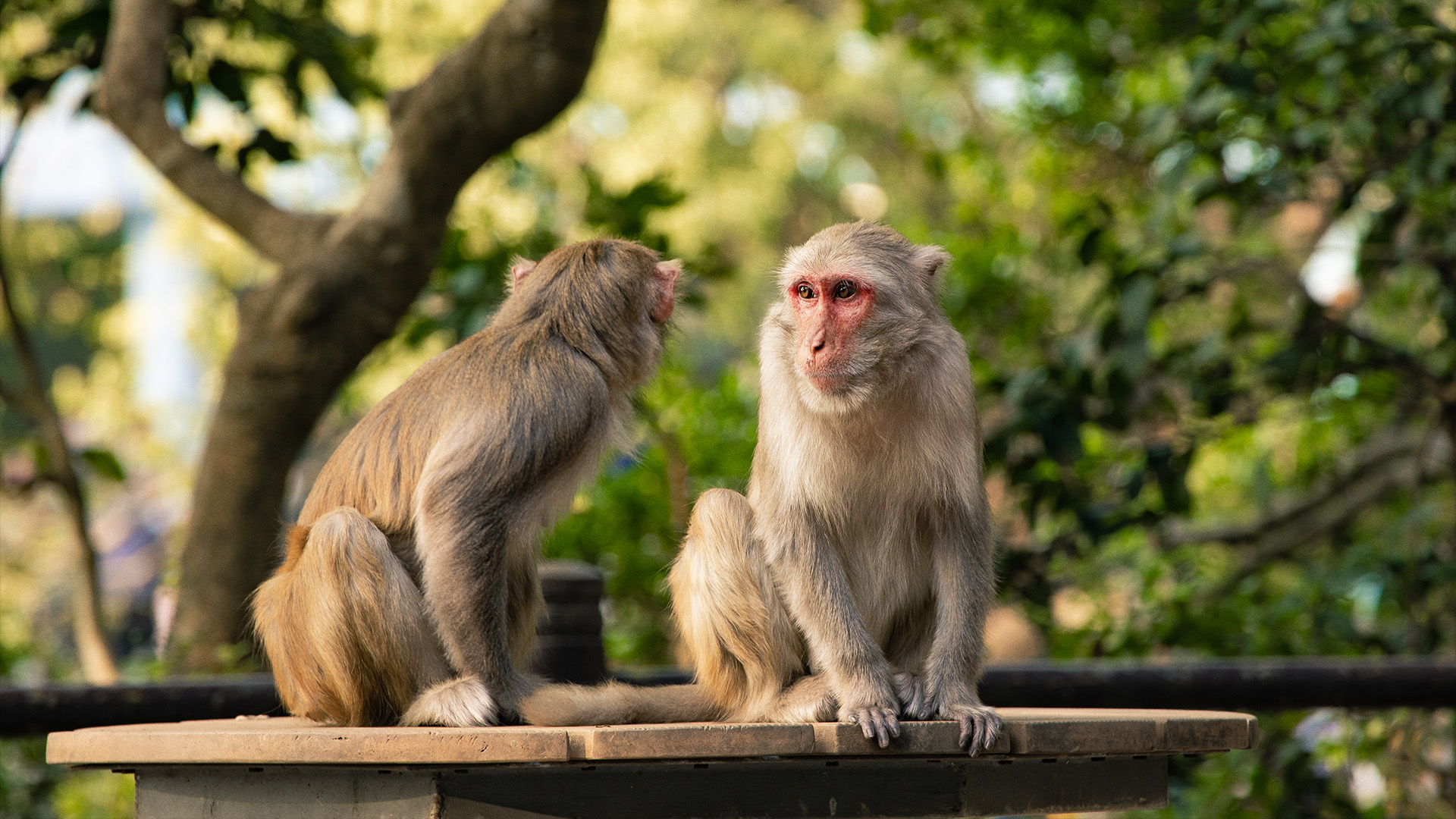
A man caught a rare but potentially lethal infection after being wounded by wild monkeys in a Hong Kong park and is currently in critical condition, health officials report.
The infection was caused by B virus, which is commonly found in the saliva, urine and stool of macaques, monkeys that live in various locations in the city, according to the Centre for Health Protection (CHP), an agency of the Department of Health in Hong Kong. The monkeys themselves usually are either asymptomatic or show only mild symptoms of infection, the Centers for Disease Control and Prevention (CDC) notes.
According to the infected man's family, he'd encountered the monkeys during a visit to Kam Shan Country Park — home to an area nicknamed "Monkey Hill" — in late February. His case is thought to be the first human infection with B virus in Hong Kong, the CHP noted.
B virus, also called monkey B virus or herpesvirus simiae, rarely infects people. From its discovery in 1932 to 2019, the virus sickened about 50 people, 21 of whom died of the infection, according to the CDC. Most of the affected people had been bitten or scratched by a monkey or were infected when the tissue or bodily fluids of a monkey had made contact with broken skin. There's only one known case of an infected person spreading B virus on to another person, the CDC notes.
Related: 11 (sometimes) deadly diseases that hopped across species
The first known human case of B virus in China was reported in 2021, in a veterinary surgeon in Beijing who'd dissected two dead monkeys and died of the infection about a month later.
In the current case in Hong Kong, the infected 37-year-old man was admitted to Yan Chai Hospital on March 21 "due to fever and decreased conscious level." As of Wednesday (April 3), he was being treated in the intensive care unit. A sample of the fluid that surrounds the brain and spinal cord tested positive for B virus.
The initial symptoms of B virus are flu-like and include fever, chills, muscle ache, fatigue and headache. Additional symptoms include shortness of breath, nausea, vomiting, abdominal pain and hiccups. (Hiccups may potentially be related to the virus invading the nervous system.) People may also develop small blisters on the part of their body a monkey scratched or made contact with.
In its late stages, the infection can cause inflammation of the brain and spinal cord. This can lead to sensations of pain, numbness or itching near the wound site, as well as muscle coordination issues and brain and nerve damage. Breathing problems and death can occur within one day to three weeks after initial symptoms appear, the CDC notes. The infection is typically treated with antiviral drugs and supportive care to maintain a person's vital signs.
Both the CDC and CHP advise the public to stay away from wild monkeys and avoid touching or feeding them. If a person is wounded by a monkey, they should wash the wound and then immediately seek medical attention.
As of April 4, CHP has not released additional information about the ongoing case.
This article is for informational purposes only and is not meant to offer medical advice.
Ever wonder why some people build muscle more easily than others or why freckles come out in the sun? Send us your questions about how the human body works to community@livescience.com with the subject line "Health Desk Q," and you may see your question answered on the website!







